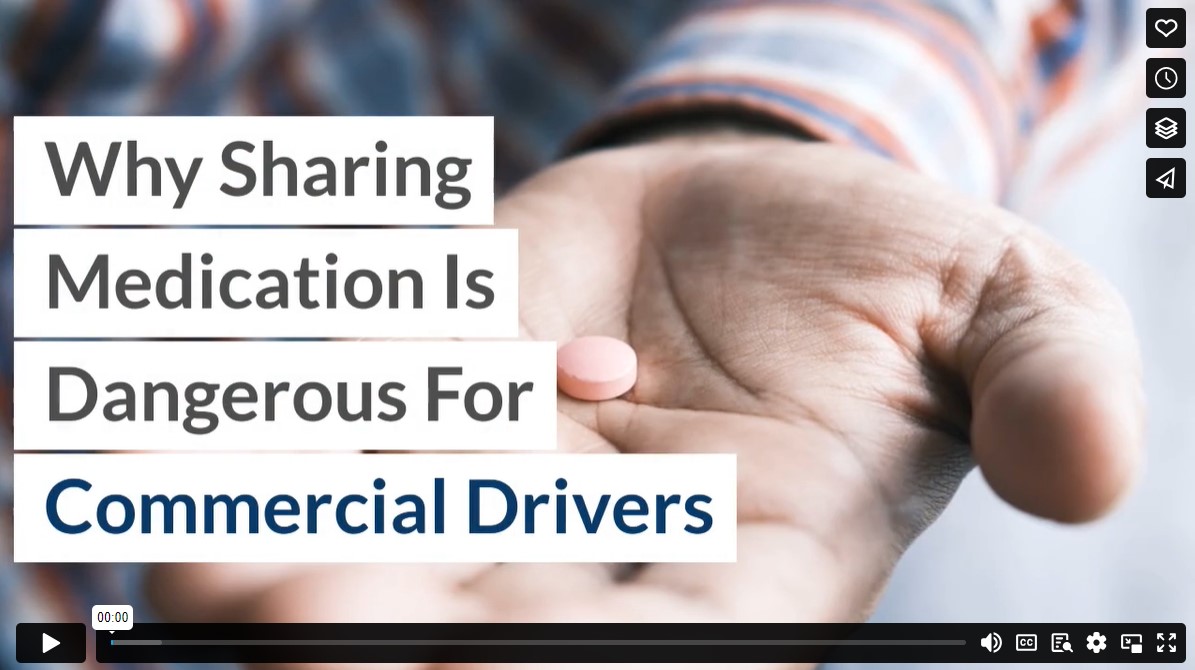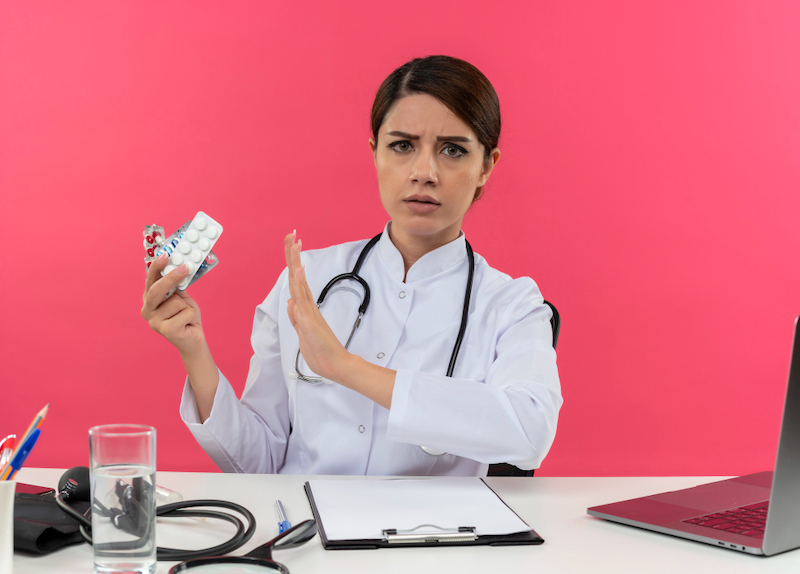Why Sharing Medication Is Dangerous For Commercial Drivers
It’s difficult for commercial drivers to get to a doctor’s office. You may work during the doctor’s regular business hours, travel out of the area, or need to fill in for other drivers who are out sick. Collectively, you are responsible for keeping supply lines open but at a significant personal cost. The constant travel makes commercial drivers prone to medical conditions that require monitoring or treatment by a medical professional. Common conditions include:
- Obesity: Due to a lack of healthy food options on the road, emotional eating, eating or drinking to stay awake on long trips, and a lack of physical exercise, drivers are twice as likely to be obese than people in other professions.
- Lung Cancer: Studies from the CDC found that male drivers are twice as likely to smoke, while female drivers are three times more likely than other workers. They attribute this to drivers’ reliance on cigarettes to stay awake. Drivers may also be exposed to chemicals they transport and gasoline fumes more often than non-commercial drivers.
- Sleep Apnea: Due to obesity, smoking, and reduced efficiency of the heart, many drivers cannot breathe normally while sleeping.
- Muscle And Nerve Pain: Being confined to a small area and sitting for extended periods without exercise causes muscle weakness and pain, especially in the back and neck or around immobilized joints. Drivers may also injure themselves when moving heavy cargo.
- Mental Health: Drivers are prone to depression and anxiety due to isolation and stress.
- Dehydration: To avoid bathroom breaks that would delay their deliveries, many drivers limit their fluid intake, leading to headaches, dry mouth, dizziness, exhaustion, kidney damage, and muscle cramps.
- Heart Disease: Their convenience diet, lack of exercise, smoking, and stress contribute to higher cholesterol and heart problems.
The Dangers
With so many health conditions common among drivers, you may be tempted to share medication with a fellow driver suffering similar symptoms. However, sharing medicine can be highly dangerous for many reasons.
Legality
It’s illegal to share medications prescribed by your doctor, especially narcotics, prescription stimulants like Adderall, or anti-anxiety medications such as Xanax. If you get pulled over, you and the person who gave you the medication may suffer legal ramifications, loss of work opportunities, and financial difficulty due to fines or time off work.
Diagnoses
Many illnesses have similar symptoms. A doctor looks at the whole picture, including a patient’s current medications, supplements, lifestyle, and medical history to narrow down the possibilities and find the underlying cause. You may take the wrong medicines if you try to self-diagnose.
Dosage
Drug doses are calculated based on body mass, current medications that may interact, health history, and individual sensitivity to varying drugs. The dose that works well for one person may not be safe for another individual.
Side-effects
A doctor picks medications by weighing your current health problems and the possible side-effects of a new drug, how it might interact with existing medicines, and your history of adverse reactions to similar medications in the same family. It’s unsafe to guess what drugs are best suited to treat your condition. Interactions can cause dangerous side effects or reduce the effectiveness of another medication you are taking.
Safety
When you get a prescription from the pharmacy, you know that you are getting the proper medication. The pharmacist ensures you get the right dosage and that the medication has not expired. They also watch for possible drug interactions. Getting medication through proper channels also helps you avoid drugs that make driving unsafe.
While many people know that narcotics and cold medicine can cause a driver to sleep, they might not know that anti-anxiety, antidepressants, high cholesterol, heartburn, and heart medications can have similar side effects. They may impair your judgment, coordination, reaction time, and ability to remain awake.
Addiction
Doctors are better equipped to decide the proper dosage and the length of time you can take a drug without developing a chemical dependence. Some people are more susceptible than others. Your medical history is a significant component of those calculations.
DOT Exam
Taking any prescription medication without a valid prescription can disqualify you from driving. By borrowing another person’s medication, you may sabotage your next DOT CDL medical exam, making you unable to work.
The Best Option
Whether you feel sympathy for another driver or need medication yourself, sharing medicine is not the way to help. There are other, safer ways to get what you need.
If you can’t get in to see your family doctor, find a 24-hour or walk-in clinic. They don’t charge as much as an emergency room visit and can get you started on medication. Telehealth has also become a popular option for those who can’t drop everything to go to their local clinic. Be sure to tell them what you do for a living and give them your complete medical history so they can make informed suggestions and prescriptions.
The provider you see will expect you to follow up with your primary care doctor in person or over the phone. Your primary care doctor knows your health history and is the best individual to guide your long-term treatment plan. It’s essential to take the time to go in to see your doctor for medication refills, even if you have to push it out a few weeks to work around your driving schedule.
Video

Infographic
With many health conditions common among drivers, you might be tempted to share medication with a fellow driver suffering similar symptoms. Find out in this infographic why sharing medicine can be highly dangerous.


